Filter by
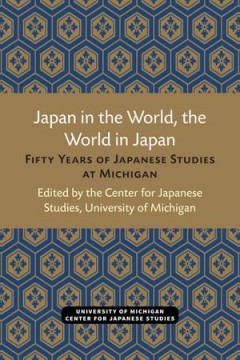
Japan in the World, the World in Japan: Fifty Years of Japanese Studies at Mi…
In fall 1997 the Center for Japanese Studies at The University of Michigan celebrated its fiftieth anniversary. The November symposium featured more than fifty speakers, moderators, and musicians who celebrated the occasion and offered reminiscences on the Center's multifaceted scholarly and professional missions, discussions of the accomplishments of its al-umni/ae, and perspectives on wartime…
- Edition
- -
- ISBN/ISSN
- -
- Collation
- -
- Series Title
- -
- Call Number
- 952 JAP j
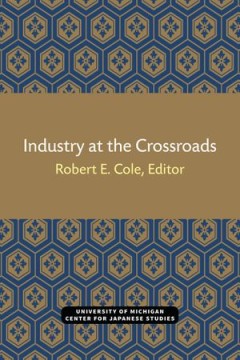
Industry at the Crossroads
International communication as a field of inquiry is, in fact, not very “internationalized.” Rather, it has been taken as a conceptual extension or empirical application of U.S. communication, and much of the world outside the West has been socialized to adopt truncated versions of Pax Americana’s notion of international communication. At stake is the “subject position” of academic an…
- Edition
- -
- ISBN/ISSN
- 9780472902040
- Collation
- -
- Series Title
- -
- Call Number
- 330 IND i
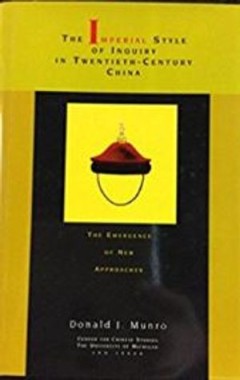
The Imperial Style of Inquiry in Twentieth-Century China: The Emergence of Ne…
How have traditional Chinese ways of thinking affected problem solving in this century? The traditional, imperial style of inquiry is associated with the belief that the universe is a coherent, internally structured unity understandable through the similarly structured human mind. It involves a reliance on antecedent and authoritarian models, coupled with an introspective focus in investigation…
- Edition
- -
- ISBN/ISSN
- 9780472901784
- Collation
- -
- Series Title
- -
- Call Number
- 301.951 MUN i
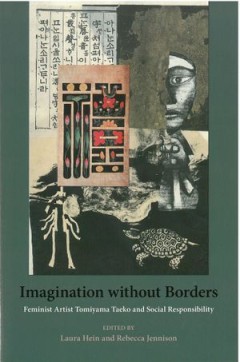
Imagination without Borders: Feminist Artist Tomiyama Taeko and Social Respon…
Tomiyama Taeko, a Japanese visual artist born in 1921, is changing the way World War II is remembered in Japan, Asia, and the world. Her work deals with complicated moral and emotional issues of empire and war responsibility that cannot be summed up in simple slogans, which makes it compelling for more than just its considerable beauty. Japanese today are still grappling with the effects of …
- Edition
- -
- ISBN/ISSN
- 9780472901623
- Collation
- -
- Series Title
- -
- Call Number
- 302.3 IMA i

Hsin-lun (New Treatise) and Other Writings by Huan T'an (43 B.C.–28 A.D.)
Better known in his own times than later, Huan T’an (43 BCE–25 CE) was a scholar-official, independent in his thought and unafraid to criticize orthodox currents of his time. A practitioner of the Old Text exegesis of the Classics, he maintained a position on the court during a turbulent time of political crises, uprisings, and civil war, spanning the reigns of four emperors. His princip…
- Edition
- -
- ISBN/ISSN
- 9780472901395
- Collation
- -
- Series Title
- -
- Call Number
- 300 POK h
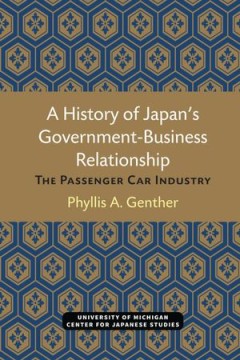
A History of Japan’s Government-Business Relationship: The Passenger Car In…
Despite the economic and political importance of the U.S.-Japan relationship and the extensive attention paid to automotive trade, few American scholars or policy makers are familiar with the history of Japanese government-business relations, either generally or for specific industries such as passenger cars. This book hopefully helps in a small way to fill that gap in our knowledge and, thus, …
- Edition
- -
- ISBN/ISSN
- 9780472902071
- Collation
- -
- Series Title
- -
- Call Number
- 952 GEN h
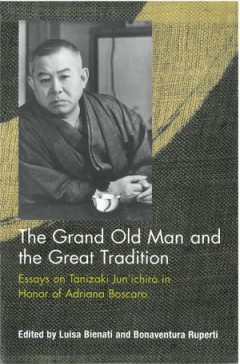
The Grand Old Man and the Great Tradition: Essays on Tanizaki Jun’ichiro in…
In 1995, on the thirtieth anniversary of Tanizaki Jun’ichiro’s death, Adriana Boscaro organized an international conference in Venice that had an unusally lasting effect on the study of this major Japanese novelist. Thanks to Boscaro’s energetic commitment, Venice became a center for Tanizaki studies that produced two volumes of conference proceedings now considered foundational for all s…
- Edition
- -
- ISBN/ISSN
- 9780472901616
- Collation
- -
- Series Title
- -
- Call Number
- 808.84 GRA g
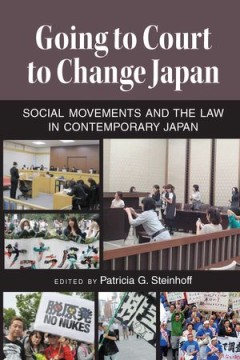
Going to Court to Change Japan: Social Movements and the Law in Contemporary …
Going to Court to Change Japan takes us inside movements dealing with causes as disparate as death by overwork, the rights of the deaf, access to prisoners on death row, consumer product safety, workers whose companies go bankrupt, and persons convicted of crimes they did not commit. Each of the six fascinating case studies stands on its own as a detailed account of how a social movement has pe…
- Edition
- -
- ISBN/ISSN
- 9780472901630
- Collation
- -
- Series Title
- -
- Call Number
- 301.952 GOI g
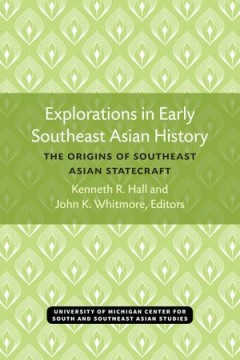
Explorations in Early Southeast Asian History: The Origins of Southeast Asian…
While following the probes of foreign individuals into various obscure parts of Southeast Asia over the centuries is a diverting and entertaining pastime, the purpose of this volume is to investigate this past with the mind, to question and postulate upon the historical patterns that have developed from earlier study of the area, and to bring concepts from other areas and disciplines to bear on…
- Edition
- -
- ISBN/ISSN
- 9780472901951
- Collation
- -
- Series Title
- -
- Call Number
- 320 EXP e
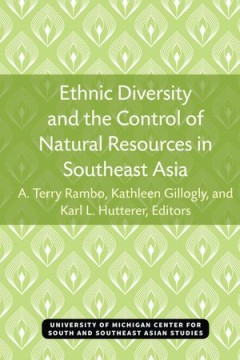
Ethnic Diversity and the Control of Natural Resources in Southeast Asia
The authors consider the ways in which the high degree of ethnic diversity within the region is related to the nature of tropical Asian environments, on the one hand, and the nature of Southeast Asian political systems and the ways in which they manipulate natural resources, on the other. Rather than focus on defining the phenomenon of ethnicity, this book examines the different social evolutio…
- Edition
- -
- ISBN/ISSN
- 9780472902309
- Collation
- -
- Series Title
- -
- Call Number
- 305.8 ETH e
 Computer Science, Information & General Works
Computer Science, Information & General Works  Philosophy & Psychology
Philosophy & Psychology  Religion
Religion  Social Sciences
Social Sciences  Language
Language  Pure Science
Pure Science  Applied Sciences
Applied Sciences  Art & Recreation
Art & Recreation  Literature
Literature  History & Geography
History & Geography